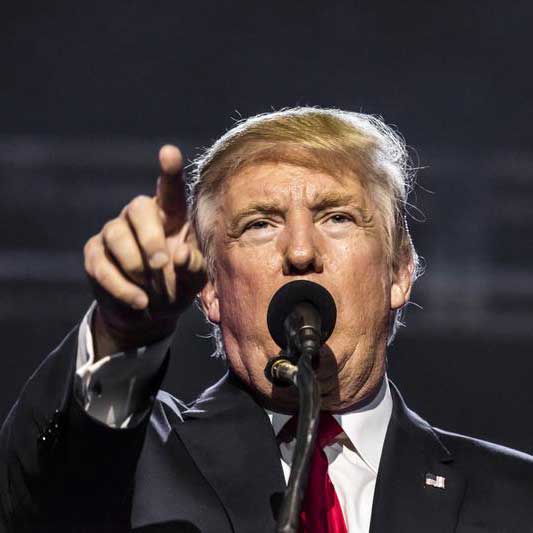On October 15, 2024, in a discussion at the Economic Club of Chicago, Illinois, former President Donald Trump refrained from pledging a peaceful transition of power if he were to lose the forthcoming presidential election.
Trump’s evasive response came when Bloomberg Editor-in-Chief, John Micklethwait, queried his position on a peaceful power handover, drawing attention to the Capitol riot that occurred on January 6, 2021.
Instead of directly addressing whether he would honor the election outcome and promote a smooth transition, Trump criticized Micklethwait, labeling him as someone who has not been supportive of him over the years. Trump alleged, “We had a peaceful transfer of power, compared to Venezuela.” Micklethwait countered this claim, stating, “It was by far the worst transfer of power for a long time.”
Trump’s portrayal of the January 6 events significantly differs from the facts. He downplayed the size of the mob and described the crowd as “perfectly behaved,” maintaining that “It was love and peace.” Trump also suggested that the protesters were let into the Capitol building by the police, a claim that remains a subject of contention.
While Trump conceded that the crowd was unhappy with the election results, he insisted that the protesters were “relatively small” in number, approximately “500-700 people.” He stated, “Nobody was killed, except for Ashli Babbitt,” neglecting to mention that several deaths were associated with the riot, and over 1,400 individuals have been federally charged.
The incident remains shrouded in controversy, sparking debates among Trump’s critics and supporters. Despite receiving intelligence warnings about potential violence, the Capitol Police were notably unprepared for the scale of the assault. Several internal reports and Senate investigations reveal that the Capitol Police experienced significant failures in intelligence gathering and sharing, contributing to their unpreparedness.
Further complicating matters, the response of the Capitol Police was hindered by the delayed arrival of the National Guard due to bureaucratic red tape and communication lapses among various agencies.
Doubts about law enforcement’s role on that day have been fueled by disturbing video clips showing some officers seemingly guiding protesters through the Capitol building, with one even fist-bumping a protester.
All these factors have intensified the debates surrounding the level of readiness and response by officials in Washington on January 6. This issue remains a central talking point in the 2024 presidential election.

